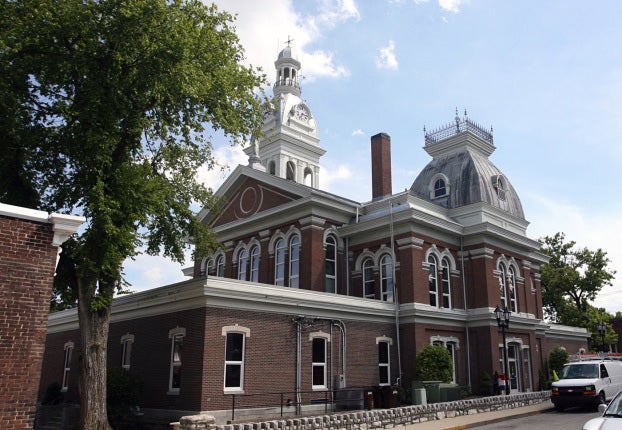County to adjust methods of collecting delinquent taxes
Published 7:30 pm Wednesday, May 10, 2017
Jessamine County Attorney Brian Goettl told the Fiscal Court at the regular session on May 2 that his office is looking to change its means of collecting some of the county’s delinquent property taxes.
“What I’m doing is looking at additional ways for those delinquent taxes that aren’t sold at the County Clerk’s sale to be collected,” Goettl said. “Traditionally, you look at foreclosures where you can sell the property itself to pay the taxes. But that is a more lengthy process than some of those that have been suggested by the revenue cabinet.”
“They’re basically my primary client in terms of collecting the delinquent property taxes,” Goettl said. “By entering into the contract and doing that work, our office is entitled to receive a 20 percent penalty on all delinquent property taxes, which we turn over to the fiscal court to help run our office.”
Goettl said that ten years ago, the process of collecting delinquent property taxes was a part-time duty for his office. A program was then implemented to justify making it a full-time duty for staff, and in the first quarter thereafter, an additional $250,000 in delinquent taxes were collected in the county.
Seven years ago, Kentucky changed the delinquent property tax law, and additional responsibilities were placed onto the offices of county attorneys. Goettl said that when property taxes are turned over from the sheriff to the clerk as delinquencies in April, his office must now send each property owner a letter within 30 days explaining that the tax bill could be sold. Payment plan options must also be explained and provided to the property owners. In addition, he said that any letter that gets returned must now be turned over to the PDA to get a new address. Then, sixty-day letters are mailed by his office on an as-needed basis before July, when a list of properties that cannot be sold is compiled.
“A lot of additional work was put on the office, which put us in the position where we couldn’t do as much regarding enforcement as we had previously been doing,” Goettl explained.
In 2011, the first year that the tax bills were sold under the new regime and system, Goettl said that $289,000 in excess fees were paid to the county attorney’s office that were turned over to the fiscal court. However, those fees have been decreasing each year since, and is now right at or under $100,000. He said that the change resulted in increased responsibility to fulfill the county’s end of the contract with the state’s Department of Revenue with less money coming in.
“We want to try to get back to doing something that will collect more of these unpaid taxes, and we are working with the Revenue Cabinet,” Goettl said.
He said that the county can sue individuals in district court for their delinquent property tax bills up to $4,000, excluding penalties and interest, and get a personal judgment against them that would withstand bankruptcy to garnish wages, levy bank accounts and find other assets to sell in order to pay the taxes. The county can also coordinate with the Revenue Cabinet to take state income tax refunds.
Goettl told the fiscal court that after the tax bill sale responsibility ends in August, his office will begin looking into seeking judgments in district court against property owners with unpaid taxes. Foreclosures will still be used as needed, and on property’s with tax bills over $4,000.
“We don’t want to do that, but it’s a far easier process than the foreclosure process,” Goettl said. “There’s a lot less legal work involved. We don’t want to sue anybody and don’t want to foreclose on anybody’s property, but at the same time, you owe your taxes just like everybody else and have to pay just like anybody else.”
Goettl said that pursuing necessary tax judgments in district court will have minimal cost for the county, but will benefit all of the county’s tax-collecting entities.




